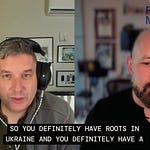Expeditions Fund wants to build Europe’s next defense industry, and they are doing it from the front line, not from a boardroom far from the battlefield.
At our Resilience event, investor and founder Mikołaj Firlej sat down with Mike Butcher and laid out what he is building. Firlej is co-founder and general partner at Expeditions Fund. As of now, the firm is on track to hit 150 million Euro in capital for early stage security and defense in Europe. That is real money in a space where, until very recently, Europe had almost no focused private capital at seed for military tech, autonomy, and core defense infrastructure.
He is doing it from a special place: Poland. Firlej, a Pole, calls Warsaw “the capital of the free world.”
“I think the closer you are to the enemy, the more you feel the sense of urgency,” he said. “We in Poland feel the same threat and the same fight, and I think we want to have strong financial performance in our contribution to wider European deterrence.”
Firlej is not a tourist in this field. He did doctoral work at Oxford on AI use in autonomous weapons systems and on how states will regulate those systems. He helped build a tech and global affairs center inside Oxford’s politics department. He has worked in the Polish Prime Minister’s office and inside the British Prime Minister’s office. He has done private capital work in the US and Switzerland. He is the kind of switch hitter venture capital needs.
Firlej believes the time is right to invest in defense. He said that his move into the field was part of “a genuine intellectual curiosity in the application of artificial intelligence in weapon systems, but more broadly in national security.”
“I’m genuinely intellectually interested in these topics. And at the same time, I’m trying to connect that to the traditional venture craft. I’m mindful that the whole defense tech space is very nascent,” he said. “In the US, it started probably around 2016, 2018. So in Europe, we are lagging behind, I think probably by about five years.”
He says Expeditions is putting money to work across Warsaw, London, and soon Paris. He makes the case that this model runs in the opposite direction from the old playbook. For years, Western funds sat in London and wrote checks into teams in Eastern Europe. He is flipping that. He is standing funds up in the East and projecting outward into the rest of Europe. His view is simple: if the threat sits on your border, you build from the border.
Firlej rejects the lazy version of the “dual use” label. He says a lot of founders build for civilian markets first, then try to bolt on a defense story when the political mood shifts. He calls that weak.
“The dual use name sometimes is misleading because oftentimes you have founders who have some civilian application, and they now want to use that momentum of interest in defense to push to defense customers or national security customers, which is actually oftentimes suboptimal for the business model they run,” he said.
The firm also wants to act as a bridge. Firlej talked about pairing serious national security operators from places like the UK, including intelligence and special operations talent, with high end AI engineers who have never touched defense. He believes that pairing is missing in Europe. He thinks those two groups do not sit in the same room often enough. His team wants to force that connection and in some cases incubate companies out of it.
“In defense tech alone, I think this is really an exciting space because it’s so early in Europe,” he said.
He said there are bright spots, and in some cases primes are starting to partner with small companies or even invest in funds to get signal. He also said that, generally, the primes have not adjusted to the moment. This is an opening for insurgents.
He pointed to WB Electronics in Poland. WB spent years as a supplier to the big state prime. Then it grew, won direct contracts, and turned into a major contractor in its own right. He thinks that is a real path and hopes to create a repeatable system to find, fund, and launch defense in Central Europe.










